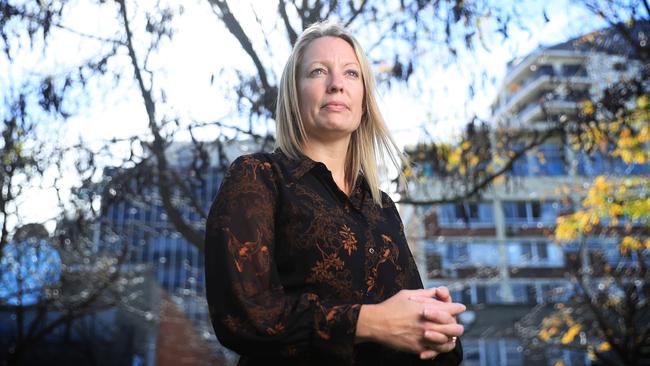Coercive and controlling behaviour set to become criminal offence in NSW
Domestic abuse laws to criminalise coercive and controlling behaviour, identified as a ‘red flag for murder’, are set to be introduced in NSW in what will be ground-breaking legislation for Australia.

Domestic violence laws to criminalise coercive and controlling behaviour, identified as a “red flag for murder”, are set to be introduced in NSW in what will be groundbreaking legislation for Australia.
In a rare display of unity, a crossbench parliamentary inquiry unanimously recommended on Wednesday that coercive control – a pattern of oppressive behaviour that can include controlling a victim’s money, appearance, movement and contact with family – should be made a criminal offence.
The committee heard evidence that 99 per cent of intimate partner homicides – 111 out of 112 cases – between 2008 and 2016 in NSW had been preceded by elements of coercive control.
NSW Attorney-General Mark Speakman launched the inquiry last year into whether new laws should ban such behaviour, arguing the cumulative effect “robs victim-survivors of their autonomy and independence”.
Mr Speakman on Wednesday welcomed the findings of the eight-month inquiry, noting that while “reasonable minds differ on the best way to respond to this abhorrent behaviour”, the Berejiklian government was committed to improving how the justice system responded to domestic and family violence.
“The NSW government will consider the findings and recommendations of this substantial body of work with the care and diligence it deserves,” he said.
Committee chair Natalie Ward described the report as a step forward for victim survivors of coercive control. “We heard evidence of terror, murder, and heartbreak, and of bare survival in the lives of women and children,” she said. “It became apparent that we have an obligation to do more to address a very obvious gap in current laws.
“While we don’t wish to intervene in ordinary respectful relationships, the evidence before us demonstrated that these patterns of coercive and controlling behaviour are red flags for murder.”
The committee heard evidence from more than 100 witnesses and made 23 recommendations aimed at ensuring legal and non-legal systems are better able to respond to coercive control.
Tasmania introduced offences of economic abuse, and emotional abuse and intimidation, in 2005, but there have been few convictions in the state.
The NSW inquiry found that a coercive control offence would not be effective without a long lead time, wide public education campaigns, training for first responders, and wraparound supports for victims. These supports will address possible risks, including over criminalisation and misidentification of victims by police.
Several submissions to the inquiry had raised fears of unintended consequences for groups vulnerable to “over-policing”, including Indigenous people.
Analysis of all domestic violence intimate partner murder-suicides in NSW over the past 18 years reveals that while physical violence preceded the deaths in fewer than half of those cases, coercive and controlling behaviours were present in almost all of them.
One of those applauding the recommendations on Wednesday was Rachael Natoli, who endured a long-term coercive control experience and has since founded the Lokahi Foundation after escaping the relationship in which she had become trapped.
“I’m so happy,” she said. “I feel very strongly that this kind of behaviour should be criminalised. I think this could really make a huge difference.”
When Ms Natoli, 39, took her twin toddlers and fled the violent and controlling relationship six years ago, she was overwhelmed by the obstacles she faced: visit police, find housing, battle the legal system, access welfare assistance, and all while learning to be a single mum.
Her former partner, who had subjected her to physical, emotional, financial and sexual abuse, was convicted of assaulting her, but that did not stop him fighting her for control of their boys.
Those issues are still ongoing.
“You don’t know where to go or what’s available,” she said. “You are trying to survive every hour and you’re in fear for your life.”
Ms Natoli believes that the educative effect of introducing the new laws will be profound.
“In my case, it would have opened my eyes up to what was actually going on in my house. I was in a physically abusive relationship but I think for victims and survivors that are in non-physically abusive or violent relationships this really assists.
“In areas that may be a bit more affluent there may be a bit less physical abuse … but much more financial and emotional abuse, and that’s where the police just do not have any power to act.”




To join the conversation, please log in. Don't have an account? Register
Join the conversation, you are commenting as Logout